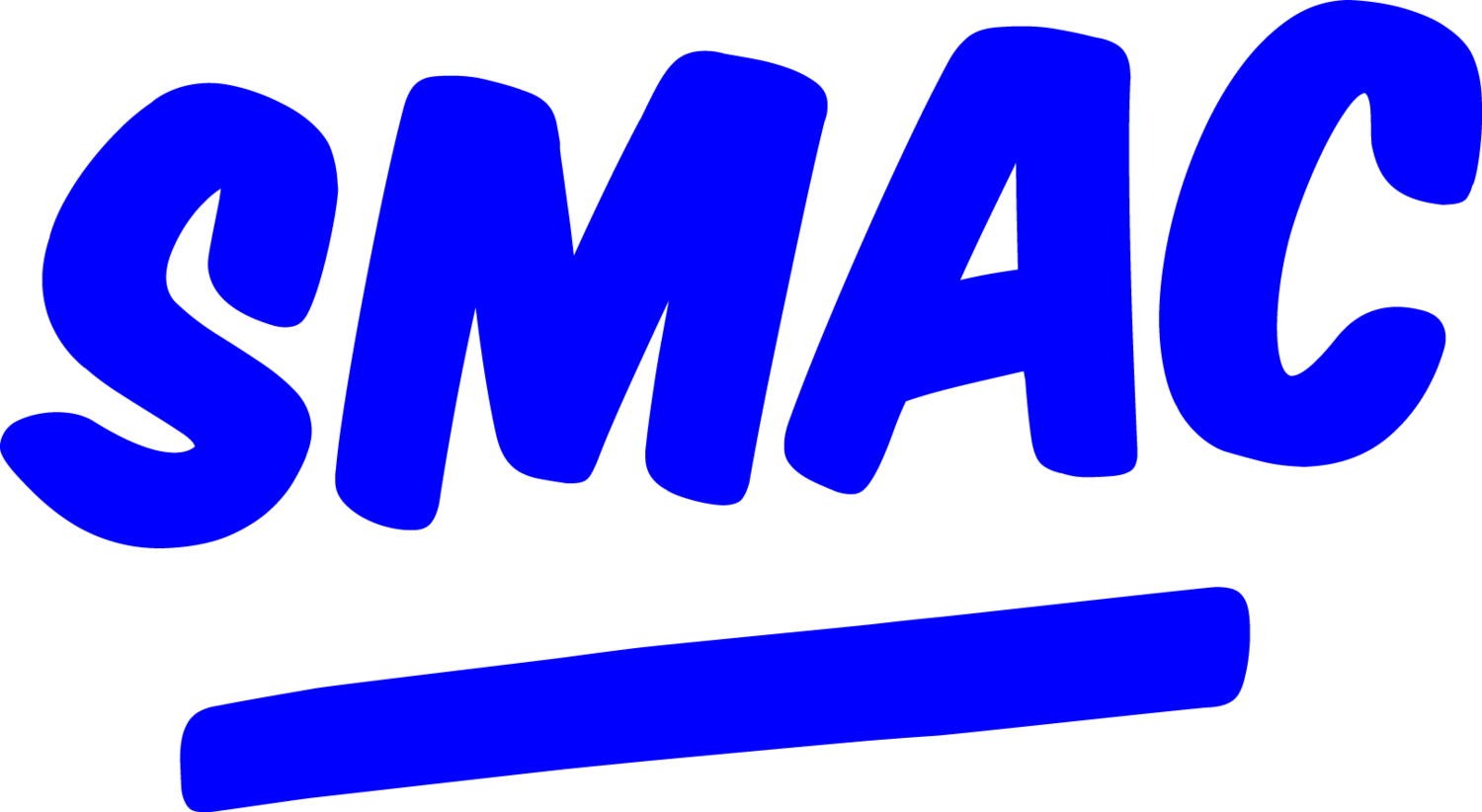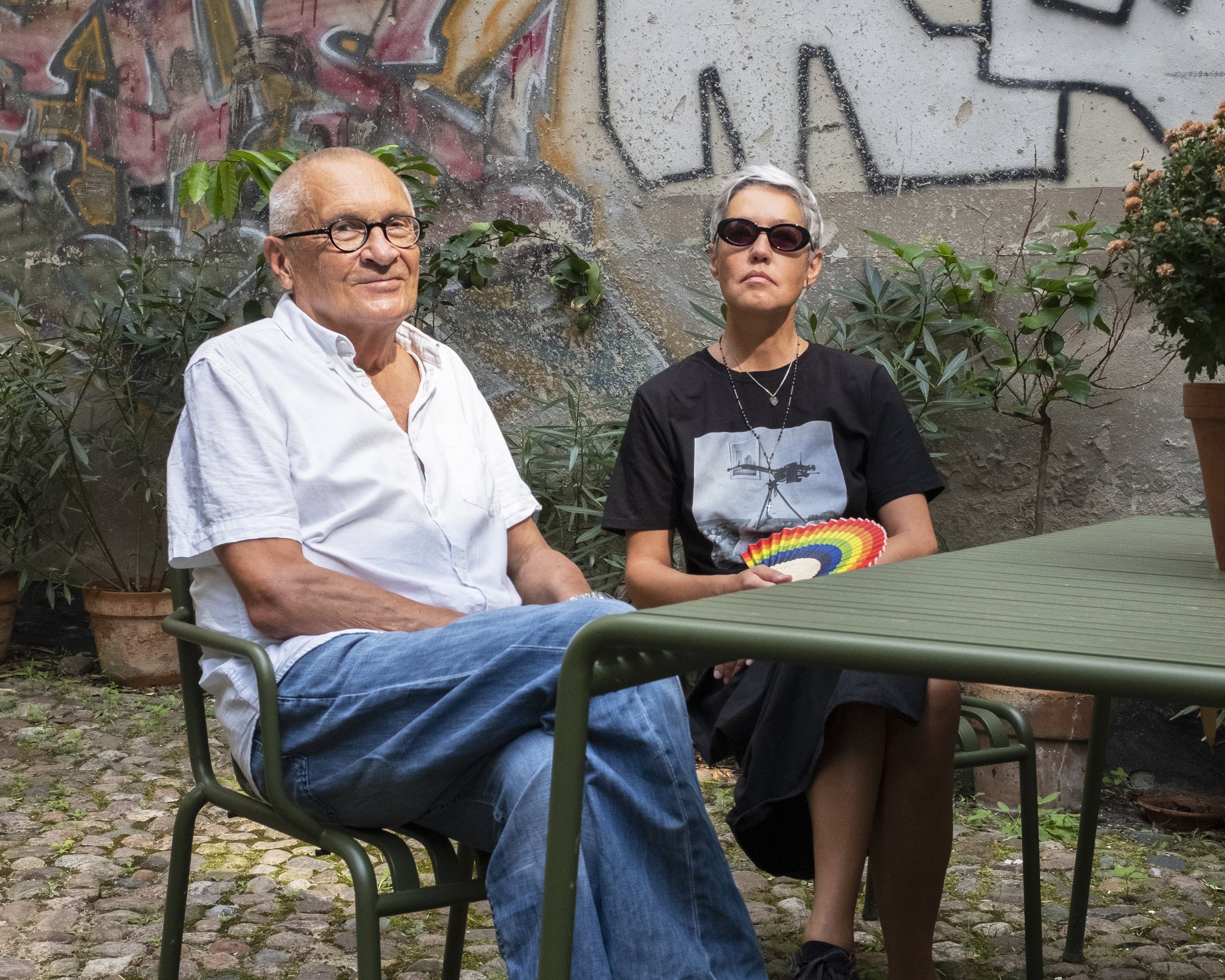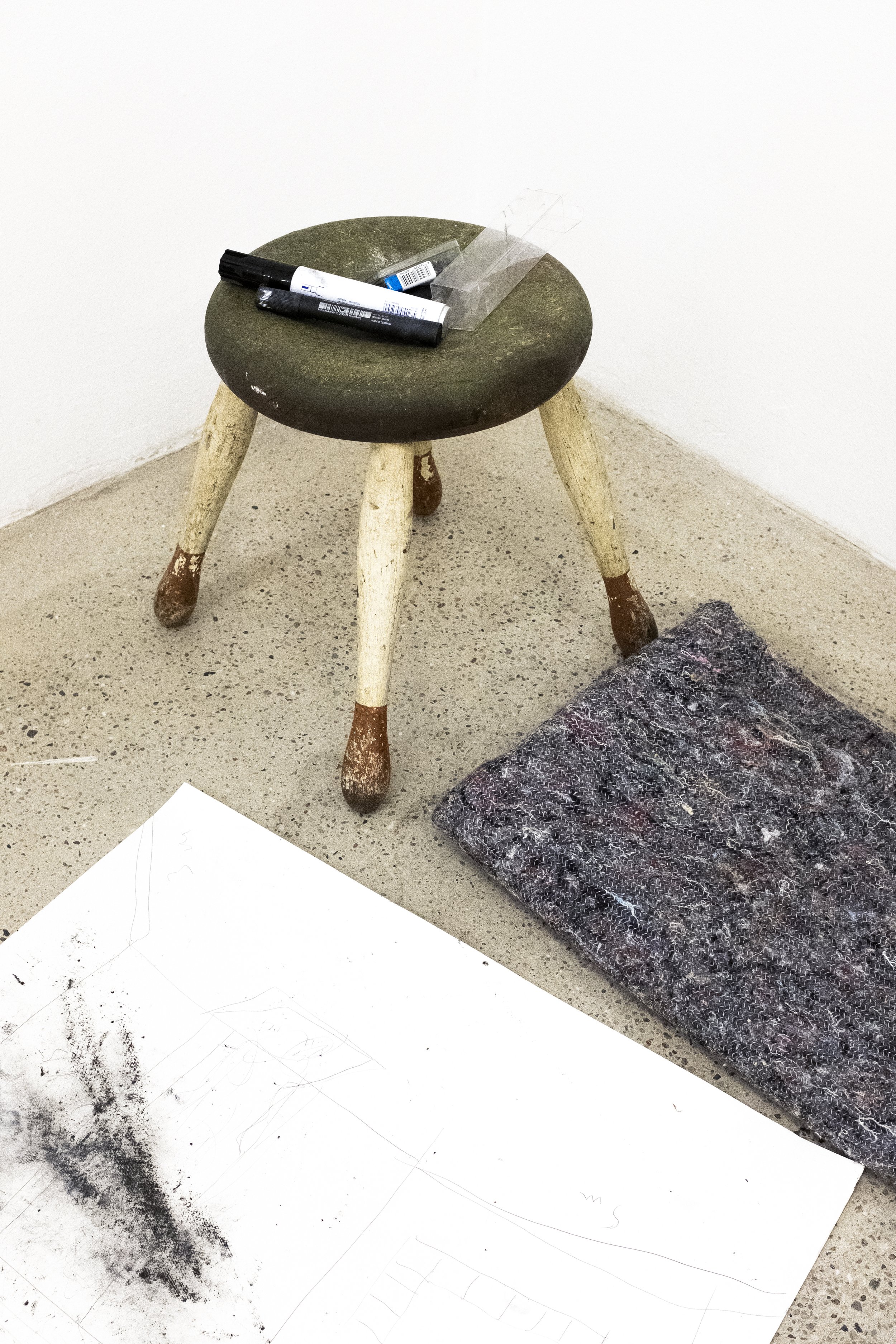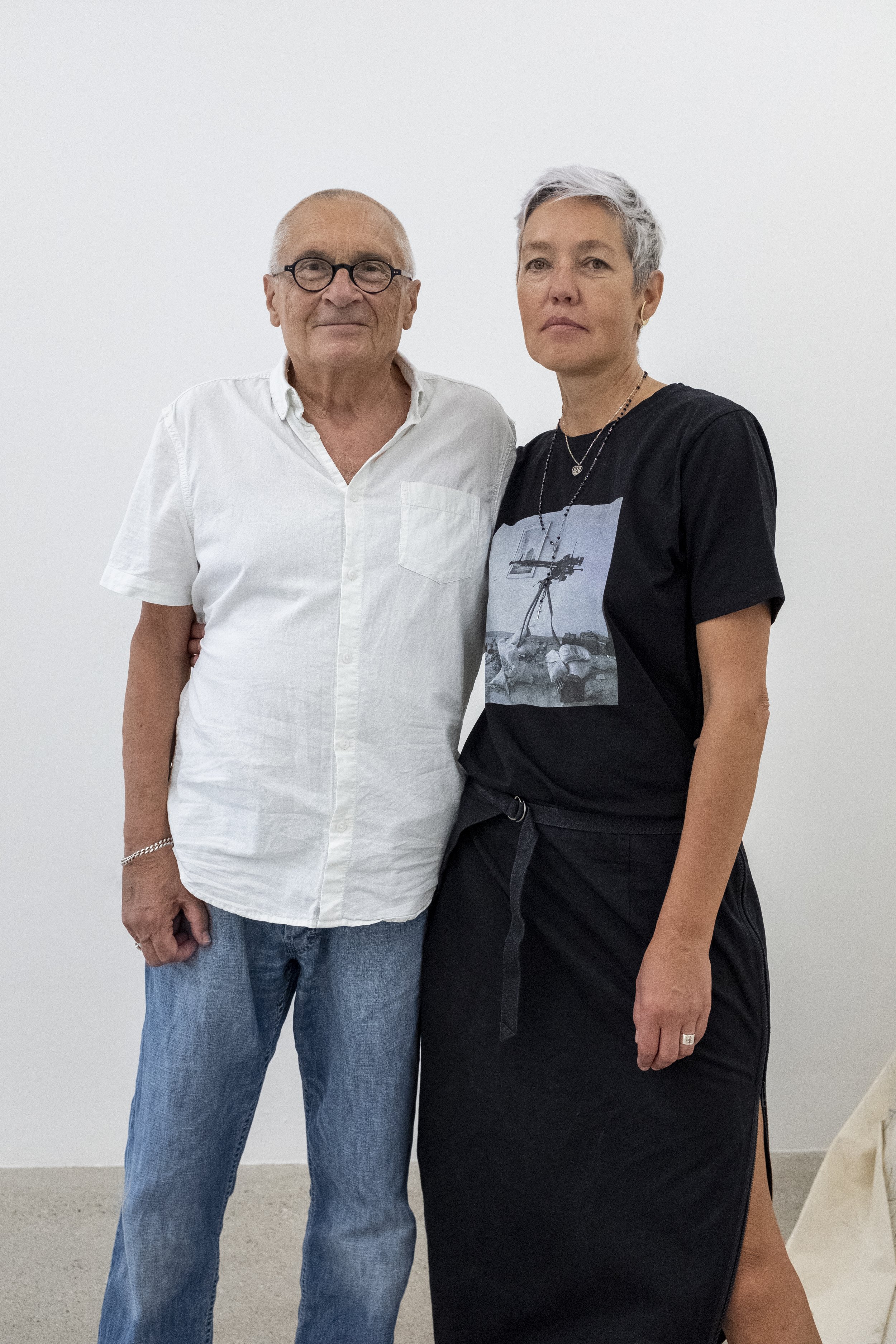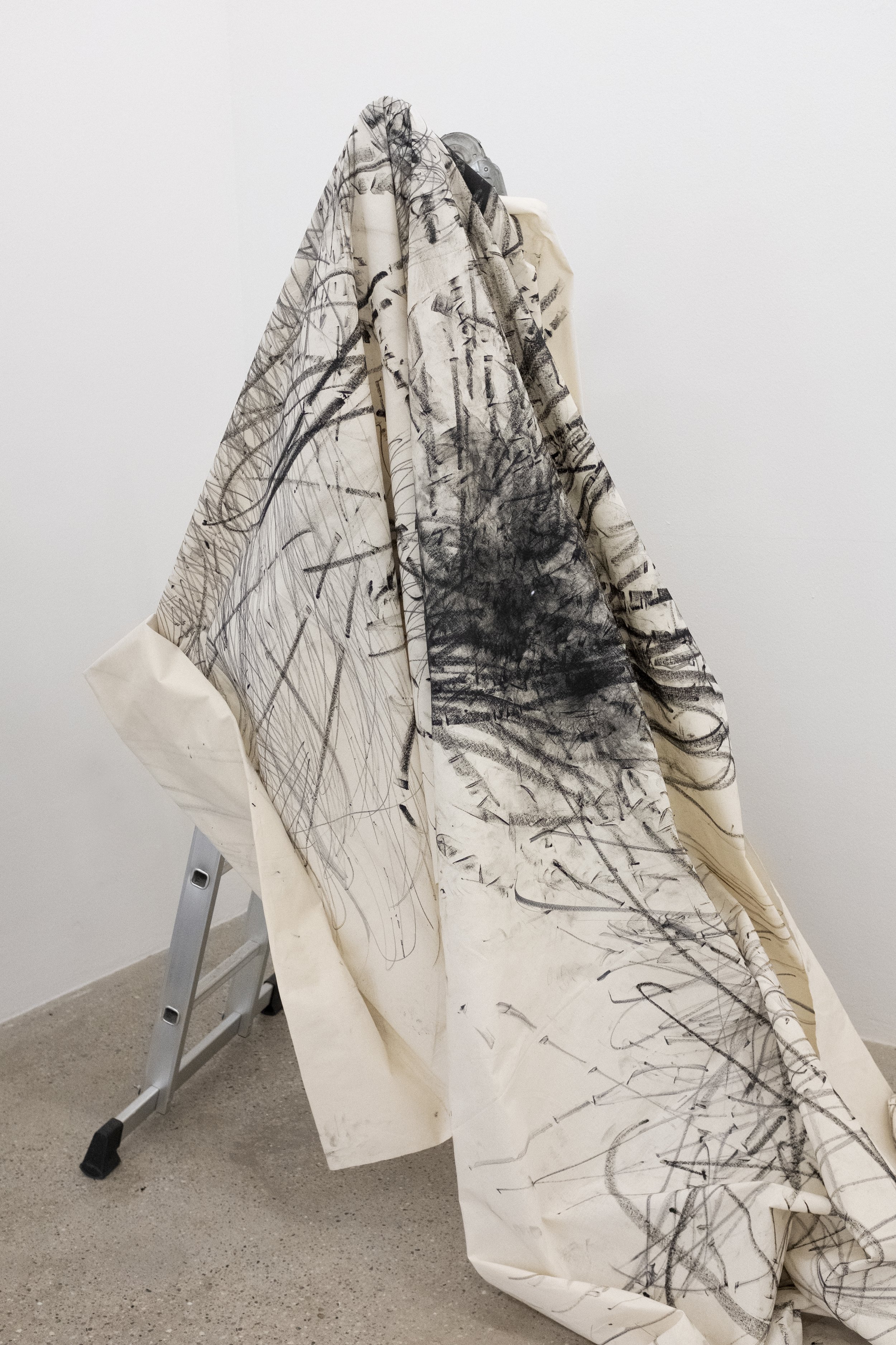Interview with Vlada Ralko + Volodymyr Budnikov
Time of War // 16th September – 2nd October 2022
SMAC: Vlada, it is obviously not an unusual question... but how did this great war of aggression start for you? Were you prepared, or did it just jump into your life?
Vlada Ralko: There are probably things you can't be prepared for, even despite the expectations. Of course, the beginning was a shock. You cannot imagine, for example, how you die, although you know that it will definitely happen. Similarly, waking up at home from the siren and the subsequent sound of an explosion is like a psychological contusion, when you stop orienting yourself in space because everything has changed in one moment. It turned out that we lived with the belief in solidarity resistance to the evil of at least the European community. Therefore, when Russian bombs began to fall on Ukrainian cities, we were numb for a while from the detached reaction of the world. It seemed to us that such an open and cynical atrocity could not last more than a few days or weeks. Perhaps that is why we are still counting the days of the war.
When did the war enter into your and Volodya's work? What has changed with the beginning of the full-scale invasion? Has living in Berlin changed you and your works?
Vlada Ralko: We left Kyiv for Lviv a week after the full-scale invasion and started working on our diaries a few days after moving. To be honest, I don't really remember how exactly the beginning of this work happened, because at that time we were still living like night-walkers. Actually, we started to reflect on the war in our projects after the Russian attack on Ukraine right away, back in 2014. During these eight years we have been living in a deformed space, where a large part of our country was under occupation, and the rest of the world persisted in considering Russia's military aggression in Ukraine as an internal conflict. Unfortunately, this means that the Soviet Union still exists in the political imagination of the world. Even though at the beginning, the fighting was in the East, while Kyiv and the rest of Ukraine remained unscathed, since 2014 we have been living with an open wound, as if the distant hostilities take place in our bodies.
“Brazen murder is taking place in the middle of your landscape and you literally feel with your own skin that the war is not somewhere else, but here, at home, with you.”
One of the projects that we did in dialogue with Volodymyr was called "Contact Line". It was about the front line, which turned into a surface, spreading everywhere. Russia's annexation of Crimea was the point of destruction of the world order and the beginning of understanding that there will be no safe world anymore. As for the current phase of the war, I feel very strange doing my artwork. During the continuous war crime that Russia is committing in Ukraine, I understand that I cannot work the same way as I did before. That is, I work with a completely different responsibility because I constantly imagine what is happening at the front line parallel to my own actions. The work of the artist now is a matter of a very difficult choice, because the urgent work is done at the front and for the front, while everything else recedes back, seems frivolous. Apparently, because of this, staying in Berlin sharpened my eyesight and my sense of time, even more, the vision of how time floats along with my life, and how it is lacking. Now it turns out that every day, every hour, every minute one makes a choice, because every moment of our artistic labor is paid for in blood, and it is not an exaggeration and not a metaphor. Working in Berlin is also a challenge and a kind of an open question because it is much easier talking about the war there, in Ukraine as we have the common experience of the war within the Soviet camp... But how to talk about the war in a very peaceful city? How to be heard here where the everyday construction is going on meanwhile my country is being razed to the ground?
We are talking now on the eve of the opening of your and Volodymyr's exhibition in Berlin and I can't help but notice that your works are very harmoniously combined in the landscape of the exhibition (if we can talk about any harmony at all. It is the harmony of disharmony, so to speak). How closely do you work together and influence each other?
Vlada Ralko: I like that you called the body of the exhibition a landscape. Sometimes we do joint projects, and it is not a collaboration, but rather a dialogue. Sometimes our points of view do not coincide, since our practices differ, but it creates tension, just like a relief with folds. Sometimes we converge on a specific topic or energy but then diverge. In this rhythm, our statements and our languages in general are being refined. The formation of the exhibition space is not only a planned action, but also a very intuitive sensory process, and now this intuition has become more acute. The art pieces of this exhibition cover an important period, which includes not only the living in the present event but also the moment of anticipation. We have combined the latest works, for example, large works by Volodymyr - these are the first large-scale works since the beginning of the active phase of the war, as well as my last year's piece, the installation "Sunday Lunch", the concept of which was significantly unfolded and manifested itself after the military attack on Ukraine. Apparently, one of the crucial issues since the Ukrainian Maidan is the degree of contact between the fact of the war and peaceful society. On the one hand, it is so natural when a person of a peaceful world tries to isolate himself from danger and war and protects the stability of traditional life with all his might. Undoubtedly, Europe has won the right to its current peace and tranquility. But, although this war is rightly recognized as the genocide of Ukrainians, Ukraine is now fighting not only for its survival. Ukrainians are ready to die for the basic human values, besides physical survival; for something that creates a human being. And this is the basis for our solidarity with the world. Because, peaceful safe human life, which is hard fought by society, paradoxically makes a person insensitive to injustice, suffering, and deaths that occur at a distance. But, you know, at the same time, in such insensitivity, society becomes extremely vulnerable and blind, and the aggressor takes advantage of it.
The exhibition works resonate not only thematically but also visually. This exhibition is almost black and white, with some splashes of color. Did it happen under the influence of time, war, or what is the reason?
Vlada Ralko: Actually, visual language is a real topic. Firstly, it is able to convey something that cannot be said in words. Here, in Berlin, we faced the impossibility to talk about the war by means of facts. It is quite strange, or perhaps we were not ready for it, but even the most horrible facts are perceived as an abstraction in the well-established world. If at the beginning of work on our series in Ukraine we thought about the impossibility of planning our artistic actions and generally doing as we did before, then this issue deepened and turned into a problem of the ability of the artist's language in general. One wonders whether this language is legitimate now, at the moment when everything is solved on the battlefield. I am confident in the influence and extraordinary possibilities of art today, as this time seems to shout to you that art does not work and culture does not work. It is a long and difficult exam. One has to respond to inquiries that were dodged before or they seemed to let be left open.
“Art always warns, however, these warnings are often read too late.”
Didn't Thomas Mann warn Germany? But we were distracted from the color or its absence. There is probably no direct metaphor here, especially since Volodymyr's palette is usually mostly black and white. Instead, we started off from a specific exhibition space, which is a classic white cube and at the same time, its lower level resembles a bomb shelter, which, unfortunately, is already a familiar Ukrainian underground dimension. It was important for us to achieve the effect of combining black as if scorched areas in Volodymyr's painting and large drawings on fabric with moments of comfortable cozy home space in my installation. But at the same time, we are talking about the fact that comfort and security disappeared instantly with the explosions in Ukrainian cities. We have many friends whose homes have been completely destroyed, but now it is impossible to fully return even to the surviving apartments and houses because our lives will never be the same again. Perhaps this is the hardest perception of war.
At the beginning of the invasion, many artists talked about the inability to create and switched to the diary format as the only possible format. Did you and Volodymyr have a similar situation? What has changed in recent months?
Vlada Ralko: As far as we know, the artists behaved completely differently. Someone is still silent, and this numbness is very understandable, someone works, someone travels with lectures and representative missions, some people immediately went to war, and almost all our friends transfer money for the needs of the army or refugees. It is obvious that the practice of the currently working artist largely depends on the opportunities and conditions in which he or she finds himself or herself. Those you said about the so-called diary format are a certain generalization. For Volodymyr and me, as artists, this format has long been an artistic technique, a kind of long-distance advancement, the unfolding of the theme in time, which has no end in sight. A long-running series is a way of thinking, an opportunity to speak, an opportunity not to be mute, an opportunity to feel now when it seems almost impossible.
Recently I read in the press that 80% of Ukrainians are actively involved in the war - either serving or helping as volunteers or with money. How are you involved in this war?
Vlada Ralko: Many of our friends and acquaintances are fighting now. They are actors, painters, writers, critics, film directors, musicians, etc. And mostly, it is their own manifestation of the will, not a mobilization call of the state. Their choice is a form of presence, perhaps the most authentic of all possible now. I think the issue of presence is the main one now when there is a temptation to avoid choices and shift the responsibility to those whom we usually call politicians. In fact, human nature and language are political, and when we distance ourselves from politics, we seem to deny our own presence (essence). Helping our military or volunteers is something that makes up a routine and obvious schedule for most Ukrainians. This is not some exceptional gesture or heroic act, rather, it is an opportunity to be oneself, to exist, to be alive.
Are you now able to think of plans for the future?
Vlada Ralko: The future is determined by what is happening now. We in Ukraine, where there is a bloody war unleashed by Russia, and the rest of the Western world, which lives a life established after the Second World War, seem to exist in different realities. But in fact, it is not the case. In 2015 Volodymyr had a series of works called "Folds", where he observed the folded silk fabric as the fabric of the World. Its landscape, with its plane-to-relief ratio, seems unbreakable until you pull the edge. And then no corner would retain its original shape. We have a common future, and perhaps the most important thing is to understand that we are influencing it right now.
Interview: Dr. Kateryna Rietz-Rakul
Translation: Elena Mezentseva
Photos: Robyn Steffen
